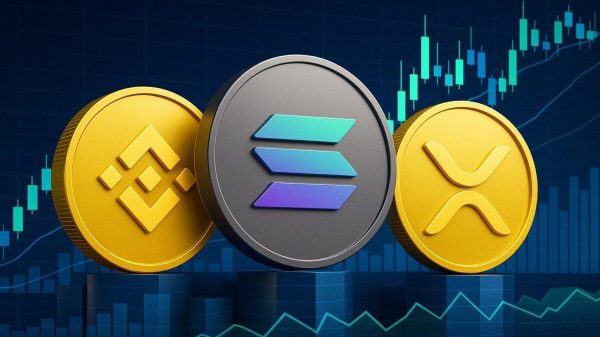The Future of Energy Trading: How Digital Platforms Are Shaping the Market
The evolution of energy trading is deeply intertwined with the advancements in digital technology. As the sector transitions towards a more integrated and efficient system, digital platforms are at the forefront of this transformation. Their role in enhancing operational efficiency, impacting renewable energy markets, and increasing market transparency cannot be understated. This article delves into the pivotal changes digital platforms are bringing to energy trading, underlining the challenges encountered and the solutions being implemented to foster a sustainable energy future.
Technology’s Role in Streamlining Operations
Digital technology has revolutionized the way energy trading operations are conducted. By leveraging software solutions, traders can now access real-time data, execute trades faster, and manage risk more effectively. Automated trading systems have reduced the need for manual intervention, increasing efficiency and reducing the likelihood of errors. Moreover, advanced analytics and machine learning models offer insights into market trends, enabling traders to make informed decisions swiftly. These technological advancements have not only streamlined operations but also paved the way for more competitive and dynamic energy markets.
Impact on Renewable Energy Markets
Digital platforms play a crucial role in the renewable energy sector by facilitating the integration of variable energy sources into the market. They allow for the efficient management of supply and demand, accommodating the intermittent nature of renewable energy. Through digital platforms, renewable energy producers can access broader markets, enhancing their ability to sell energy at competitive prices. Furthermore, these platforms support the implementation of innovative trading models, such as peer-to-peer energy trading, which empowers consumers to become prosumers—both producers and consumers of energy. This has significant implications for the growth and sustainability of renewable energy markets.
The Rise of Digital Trading Platforms
Among the companies leading the charge in the digital transformation of energy trading is Trayport. Trayport’s trading software has become instrumental in connecting buyers and sellers within the energy sector, facilitating efficient and transparent transactions. The platform’s robust architecture supports high volumes of trade with speed and reliability, catering to the complex needs of energy traders. By offering a comprehensive suite of tools for trade execution, market analysis, and risk management, Trayport has solidified its position as a pivotal player in the digital energy trading arena. Their contribution underscores the critical role of digital platforms in modernizing energy trading practices.
Enhancing Market Transparency and Accessibility
Digital platforms have significantly improved market transparency by providing participants with access to real-time information and pricing data. This level of transparency is vital for fair and efficient market functioning, as it helps reduce information asymmetry among market participants. Additionally, digital platforms have lowered the barriers to entry for smaller players, enabling them to compete on a more level playing field with established entities. By democratizing access to the energy trading market, digital technology is fostering a more inclusive and competitive environment.
Challenges and Solutions in Digital Energy Trading
Despite the benefits, the shift towards digital energy trading is not without its challenges. Cybersecurity emerges as a primary concern, with the increasing reliance on digital platforms making the energy sector a target for cyber-attacks. To mitigate these risks, companies are investing in advanced security measures, including encryption, multi-factor authentication, and continuous monitoring of their systems.
Regulatory compliance is another significant challenge, as the digital trading landscape evolves rapidly. Solutions involve close collaboration between digital platform providers, traders, and regulators to ensure that the frameworks are adaptive and supportive of innovation, while maintaining market integrity and protecting consumer interests.
Conclusion: Shaping a Sustainable Energy Future
The influence of digital platforms on energy trading is profound and far-reaching. By streamlining operations, supporting renewable energy markets, enhancing transparency, and providing solutions to emerging challenges, these platforms are shaping a more efficient and sustainable future for energy trading. As we move forward, the role of technology will only grow, with digital platforms continuing to drive the evolution of the sector. Embracing this digital transformation is essential for building a resilient and sustainable energy market that can meet the demands of the future.
The post The Future of Energy Trading: Trends and Innovations appeared first on FinanceBrokerage.






































